Last Updated on October 29, 2018
Victorian Era Films In Development 2016 looks at costume and period dramas that are currently or reportedly in development, production and pre-production. This is Part 2 of Period Dramas 2016 Victorian Era, part of a series of posts featuring the new costume dramas and period films to be released in 2016.
Included here are films, television miniseries, made for television movies, etc. set during the reign of Queen Victoria: Victorian era (1837 to 1901).
![]()
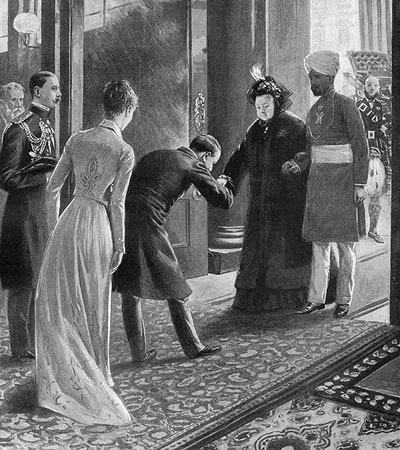 IN DEVELOPMENT – Victoria and Abdul
IN DEVELOPMENT – Victoria and Abdul
Planned to go into production in 2016 for a 2017 release.
The film tells “the extraordinary true story of an unexpected friendship in the later years of Queen Victoria’s remarkable rule. When Abdul Karim, a young clerk, travels from India to participate in the Queen’s Golden Jubilee, he is surprised to find favor with the Queen herself. As the Queen questions the constrictions of her long-held position, the two forge an unlikely and devoted alliance with a loyalty to one another that her household and inner circle all attempt to destroy. As the friendship deepens, the Queen begins to see a changing world through new eyes and joyfully reclaims her humanity.”
From Working Title in association with BBC Films, with a screenplay by Lee Hall (Billy Elliot), based on Shrabani Basu’s book Victoria & Abdul: The True Story of the Queen’s Closest Confidant. Directed by Stephen Frears. Focus Features will hold worldwide rights.
Starring Judi Dench.
![]()
IN DEVELOPMENT – My Cousin Rachel
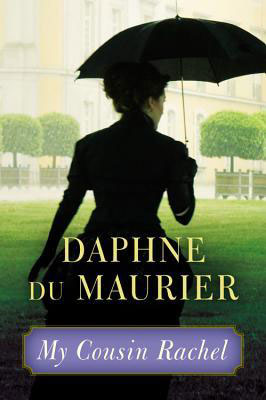 Filming as of April 2016, expected to be in theaters in 2017.
Filming as of April 2016, expected to be in theaters in 2017.
In this dark gothic romance, a young Englishman plots revenge against his mysterious, beautiful cousin, believing that she murdered his guardian. But his feelings become complicated as he finds himself falling under the beguiling spell of her charms.
From Fox Searchlight, the period drama is being filmed on location in Cornwall, England and Italy.
Philip Ashley’s older cousin Ambrose, who raised the orphaned Philip as his own son, has died in Rome. Philip, the heir to the Ambrose’s beautiful English estate, is crushed that the man he loved died far from home. He is also suspicious. While in Italy, Ambrose fell in love with Rachel, a beautiful English and Italian woman. But the final, brief letters Ambrose wrote hint that his love had turned to paranoia and fear.
Now Rachel has arrived at Philip’s newly inherited estate. Could this exquisite woman, who seems to genuinely share Philip’s grief at Ambrose’s death, really be as cruel as Philip imagined? Or is she the kind, passionate woman with whom Ambrose fell in love? Philip struggles to answer this question, knowing Ambrose’s estate, and his own future, will be destroyed if his answer is wrong.
Set in Cornwall, England in the latter half of the 19th Century.
Based on the classic novel by Daphne du Maurier and adapted by director Roger Michell. There was a adaptation of the story that was made into a 1952 film starring Richard Burton and Olivia de Havilland.
Starring Sam Claflin, Rachel Weisz, Iain Glen, Holliday Grainger, Simon Russell Beale.
![]()
IN DEVELOPMENT – Dark Angel (ITV)
ITV has commissioned a two-part drama, Dark Angel, based on the extraordinary true story of the Victorian poisoner Mary Ann Cotton, played by Downton Abbey star Joanne Froggatt (Anna Bates). Dark Angel takes place over 15 years, covered in two 90-min episodes.
It was just announced that Dark Angel is coming to PBS Masterpiece in 2016 so that officially makes it NEW in 2016!
We meet Mary Ann as a loving wife and mother, newly returned to her native North East of England. But faced with abject poverty and an ailing husband, we see how ruthlessly determined she is to pursue her desires – and a better life. Mary Ann is a serial killer, a poisoner whose methods leave no visible scars, allowing her tally of victims to mount unsuspected by a Victorian society unable to conceive of a woman capable of such terrible crimes. Travelling around the North East, she insinuates herself into unsuspecting families, marrying and creating new families of her own – before killing them, taking their money and moving on. Through adultery, bigamy, fraud and murder, Mary Ann betters herself socially and financially. But the more she kills, the greater the risk her crimes will finally be exposed.
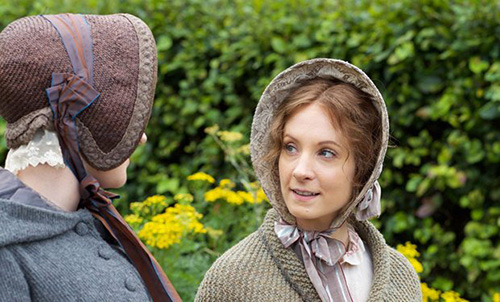
Directed by Emmy award-winner Brian Percival (MASTERPIECE: Downton Abbey), written by Golden Globe nominee Gwyneth Hughes (The Girls), Dark Angel dramatizes the events that drew a troubled woman ever deeper into a career of casual murder, while her loved ones and friends, who were also her victims, never suspected a thing.
Born in North East England in 1832, a child of the coal fields, Mary Ann Cotton grew up in poverty with the dream of escaping the hard life of a miner’s family, a goal she came tantalizingly close to achieving. Her chosen means were her good looks, sexual allure, and the dirty secret of nineteenth-century suspicious deaths: arsenic, which is tasteless and easily disguised in a cup of tea.
For authorities, the problem was that arsenic poisoning, if done skillfully, mimicked the symptoms of two of the major public health scourges of the day; typhoid fever and cholera. The passing of a child or husband after a week of severe stomach pains, convulsions, and other portents of disease was all too common — and even less surprising when several members of the same household succumbed.
Mary Ann did tempt fate by taking out a modest insurance policy on her intended victims, whenever possible, but she inadvertently hit on the major success strategies of a serial killer: keep moving, be charming, and exude self confidence. And along with others in this line of criminality, her body count can never be certain; the current best estimate is at least thirteen, ranking her far above her Victorian male counterpart, Jack the Ripper.
Female serial killers are so rare that criminologists continue to debate what makes them tick. Is it a thirst for power, a desire for material gain, or a sadistic delight in undermining gender stereotypes when they ask, “Why don’t I make you a nice cup of tea?”
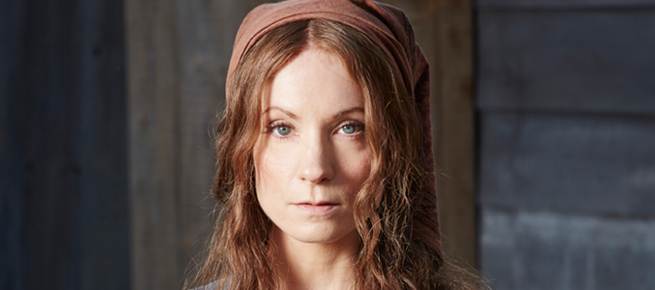
Filming began on the costume drama in August, 2015 in North Yorkshire and County Durham, England. The period drama is inspired by the book Mary Ann Cotton: Britain’s First Female Serial Killer by David Wilson, which is published by Waterside Press.
Dark Angel also features Alun Armstrong (MASTERPIECE: Little Dorrit, MASTERPIECE: Bleak House, Penny Dreadful), Jonas Armstrong (Robin Hood), Laura Morgan (Suspicions of Mr Whicher), Sam Hoare (MASTERPIECE:Jane Eyre, Life in Squares) Emma Fielding (Arthur & George), Thomas Howes (MASTERPIECE: Downton Abbey) and Penny Layden (Call the Midwife).
![]() IN DEVELOPMENT – Mary Barton (BBC)
IN DEVELOPMENT – Mary Barton (BBC)
Back in December of 2012, The Guardian reported that “The BBC is looking to adapt Elizabeth Gaskell’s VICTORIAN era novel Mary Barton, the story of a young woman trapped in the appalling housing conditions and social inequality of 19th-century Manchester.”
The draft script is being written by Heidi Thomas, creator / writer of BBC’s Call the Midwife. Thomas is also the writer of BBC’s 1920s era period drama Lilies, Ballet Shoes, Upstairs Downstairs, Cranford, Madame Bovary and I Capture the Castle.
In December of 2013 the Independent reported that “she is about to deliver the script for a new version of Gaskell’s Mary Barton, she says, though the demands of Call the Midwife have slowed her.” Season 5 of Call the Midwife airs on BBC January 17, 2016, and recently the director general Tony Hall announced the series had already been commissioned for 2016 Christmas Special and another eight episodes taking Season 6 into 1962. Clearly Thomas has her plate full, but let’s hope she has been saving room for Mary Barton.
Elizabeth Gaskell’s first novel, set in the VICTORIAN era between 1839 and 1842, is considered to be pioneering in that it made public the great division between rich and poor – a theme that inspired much of her finest work that continued to spotlight the need for social reform. Other works by Elizabeth Gaskell have been adapted into exceptional costume dramas, including Wives and Daughters, Cranford, and North and South.
I think it is important the working classes have their story told and history brought to life. I am keen to see that on screen. The novel is all about the rights of workers, how they organise, the start of trade unions, the life experiences of the very poor. It will shine a light on where we came from, compared to how we live now. It is important not just to make period dramas which are visually appealing. – Heidi Thomas
Gaskell’s Mary Barton was dramatized by Elaine Morgan for the BBC Scotland in 1964 as a four-part television series in black and white, each just 35 minutes long. Lois Daine starred as Mary Barton, and the cast included George A. Cooper, Cyril Luckham, and Linda Marlowe. The book Adapting Gaskell: Screen and Stage Versions of Elizabeth Gaskell’s Fiction says that this is a ‘lost” series, meaning that no known tapes of the teleplay exist. BBC Radio 4 Woman’s Hour aired a four and a half hour long, 20 part telling of the novel by Gaskell with David Calder, Emma Rydal and Paul Copley. While no episodes are currently available on the BBC player, the full program of the original recording is available here, and from the sample, it sounds well worth listening to.
While no new reports have been made made about the status of Thomas’ Mary Barton for BBC, presumably it is still IN DEVELOPMENT.
About Mary Barton, the book, published in 1848: “Mary Barton, the daughter of disillusioned trade unionist, rejects her working-class lover Jem Wilson in the hope of marrying Henry Carson, the mill owner’s son, and making a better life for herself and her father. But when Henry is shot down in the street and Jem becomes the main suspect, Mary finds herself painfully torn between the two men. Through Mary’s dilemma, and the moving portrayal of her father, the embittered and courageous activist John Barton, Mary Barton powerfully dramatizes the class divides of the ‘hungry forties’ as personal tragedy. In its social and political setting, it looks towards Elizabeth Gaskell’s great novels of the industrial revolution, in particular North and South.”
![]() MAYBE IN DEVELOPMENT – Of Corset’s Mine: A Victorian Comedy
MAYBE IN DEVELOPMENT – Of Corset’s Mine: A Victorian Comedy
Of Corset’s Mine is a 19th-century romantic farce about a womanizing aristocrat forced to disguise himself as a woman in order to save the family’s inheritance while risking losing the love of his life. This indie romantic comedy is from The Fantastic Films and is produced by Kelley Reynolds, Jasper Graham and Benjamin Beladi, and is billed as a witty comedy of errors with corsets. The movie was reportedly shot on film in 2012 in Ireland, with a look “very much in the same vein as Shakespeare in Love.”
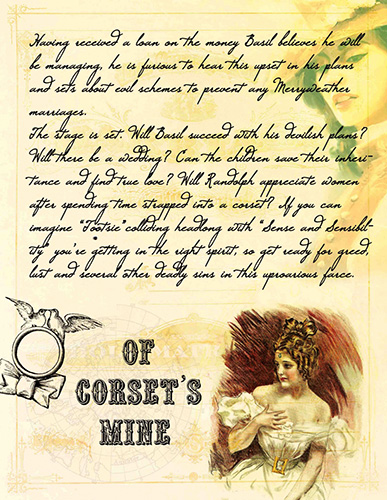
England, 1871: Widowed matriarch Mrs. Merryweather is off to visit her ill sister. Just as she leaves she informs her daughters: the precocious Daphne and the bookish Henrietta, that her husband’s will has been brought to her attention. Henrietta is three weeks shy of her 28th birthday, and the will states their cousin Basil (from the wrong side of the mansion) shall handle their finances if one of them is not married by the time “Henri” turns 28. Their only hope of maintaining their inheritance is if their scheduled visitor falls in love with one of them. That evening, Henrietta and Daphne’s brother Randolph, a womanizing aristocrat, arrives home drunk. When he pokes fun at how easy they have it being girls, the sisters dress him in drag in retaliation…only to find that he makes quite a pretty woman. Their fun is interrupted when their visitors arrive a day early – the eligible bachelor, Trevor, and his sister lovely sister, Jane.
Script by Sharon Soboil. Directing Of Corset’s Mine was Connery’s 5th time at the helm. Cast includes Camilla Belle (Back to the Secret Garden and From Prada to Nada, a Latina spin on Jane Austen’s Sense and Sensibility), Derek Jacobi (Anonymous, Effie Gray, The Borgias, The King’s Speech), William Mosely (The Chronicles of Narnia), John Cleese, Lucy Punch, Christine Baranski. Update: It was previously reported that the film was directed by British actor / director Jason Connery, son of actor Sean Connery, but Willow and Thatch has heard that Connery is “no longer involved.”
The Works International is selling international rights.
![]()
IN DEVELOPMENT: Tommy’s Honour
This summer, British actor / director Jason Connery, son of actor Sean Connery, was busy filming his upcoming VICTORIAN era golfing dramatic feature film biopic Tommy’s Honour in Peebles, Scotland. The film, which is set in the 1860s, will focus on the ‘multi-faceted’ relationship between the golf pioneer, who helped set up the Open championship and won it four times, and his son, who also went on to become a successful golfer. Connery said “This is an extraordinary and intimate tale of love and family at the beginning of the great game of golf.”
The drama in this film is off the golf course. Our duty was not to make a good or bad golf film. Our duty was to make a good film that has golf in it. – Jack Lowden in conversation with Golf World
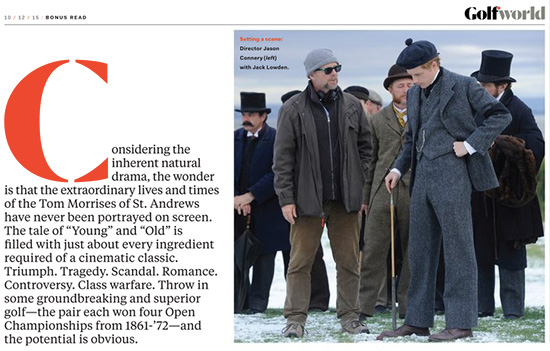
Set in St. Andrews, Scotland during the hidebound Victorian era, the story opens in 1866 as 15-year-old TOMMY MORRIS . (Jack Lowden) heads to the links with his father, TOM MORRIS (Peter Mullan). Already a legend, “Old Tom” is greens-keeper for the Royal & Ancient golf club, where he established the standard of 18 holes per round; as well as the town’s club- and ball-maker; and thrice winner of the first major golf tournament, the Open Championship – which he founded in 1860.
Tom Morris has secured his place in the history of the ancient game. But Tommy will soon outshine him, retiring the Open’s prize Championship Belt while still in his teens (by winning it three times in a row), and, as the “dashing young man of golf,” drawing flocks of spectators to the sport and becoming its first touring pro.
Despite their shared passion, father and son repeatedly clash over the unwritten rules of social class, culminating in Tommy’s marriage to a woman of lower standing with a shameful secret in her past. Tommy’s beloved wife MEG (Ophelia Lovibond) figures in this true story’s climax, as Tom makes a fatal misjudgement that strips Tommy of everything he holds dear. From the ashes of that fateful choice, Old Tom rises to a mission that carries him through the final decades of his life: Honouring Tommy.
Tommy’s Honour is based on Kevin Cook’s book about the 19th century golfer Old Tom Morris. “Tommy’s Honor is both fascinating history and a moving personal saga. Golfers will love it, but this book isn’t only for golfers. It’s for every son who has fought to escape a father’s shadow and for every father who had guided a son toward manhood, then found it hard to let him go.”
Timeless Films will handle International Sales and introduced buyers to the project at the Toronto International Film Festival. The film was supported by a grant from Creative Scotland, “the public body that supports the arts, screen and creative industries across all parts of Scotland on behalf of everyone who lives, works or visits here.”
The movie was in post-production in the fall of 2015 and there is a tentative mid-summer of 2016 release date. The dram / biopic stars Peter Mullan (War Horse), Jack Lowden and Ophelia Lovibond (Oliver Twist).
![]() IN DEVELOPMENT – The Gilded Age
IN DEVELOPMENT – The Gilded Age
NBC first announced in 2012 that Julian Fellowes was to write and produce The Gilded Age, a sweeping epic in the style of Downton Abbey, depicting the world of the millionaire titans of 1880s New York. NBC described the dramatic television series as an epic tale of the princes of the American Renaissance, and the vast fortunes they made — and spent — in late nineteenth-century New York.
This was a vivid time, with dizzying, brilliant ascents and calamitous falls, of record-breaking ostentation and savage rivalry; a time when money was king. – Julian Fellowes
According to Deadline, because of Fellowes’ commitment to Downton Abbey, The Gilded Age was “put on the back burner, with NBC and Universal TV executive giving the Oscar and Emmy winner carte blanche to come work on the NBC series when he is ready/done with Downton.” Back in March 2015, it was reported that Fellowes plans “to create a fictional pool of characters for The Gilded Age and set them in an actual period of history, where real-life events — although he won’t reveal which — emerge infrequently to help act as reference points.”
The Gilded Age is expected to air on NBC beginning in 2017.
UPDATE: NBC’s The Gilded Age is set to start shooting later this year, Fellowes tells RadioTimes.com. As of January, 2016, he said that he had not yet started writing the script, but will be working on that this year, with the goal of filming at the end of this year.
![]() MAYBE IN DEVELOPMENT – The Buccaneers
MAYBE IN DEVELOPMENT – The Buccaneers
Producer Alison Owen has a long list of period dramas to her credit (Elizabeth, The Other Boleyn Girl, Small Island, Jane Eyre, Saving Mr. Banks, Suffragette, Tulip Fever). In October of 2012 it was reported that she was to co-produce Edith Wharton’s The Buccaneers alongside BBC Films, the feature film-making arm of the BBC, through her independent production company, Ruby Film & Television. The production companies were in talks with Simon Curtis (My Week with Marilyn, MASTERPIECE: Indian Summers, Mrs. Dalloway, MASTERPIECE: Carrie’s War, MASTERPIECE: The Virgin Queen) to direct Wharton’s novel. Like the 1995 BBC television miniseries version, it’s the story of a group of ambitious and wealthy American girls who go to 1870s VICTORIAN era England to find aristocratic husbands. (Interestingly, British Simon Curtis is married to American Elizabeth McGovern, who plays the American heiress Cora Crawley, Countess of Grantham on Downton Abbey.)
The script for the new feature film The Buccaneers was written by Heidi Thomas (I Capture The Castle, MASTERPIECE: Madame Bovary, MASTERPIECE: Cranford, MASTERPIECE: Upstairs Downstairs). Word was that “If he signs the deal for The Buccaneers, shooting aims to begin during the second quarter of next year (2013).” That didn’t happen, and in 2014 Alison Owen joined forces with Debra Hayward (Atonement, Pride And Prejudice, and Les Misérables) to form Monumental Pictures to produce film and TV content. Owen said that as a female producing team they “hope to bring a different perspective to the UK and international production landscapes” and that could mean interesting things for The Buccaneers if it is still on the table for Owen.
But perhaps the project has vanished or is caught up in red tape. It would be wonderful to have The Buccaneers adapted for the big-screen by this fabulous team, but whether or not this could still happen is unknown. Perhaps lovers of period and costume dramas should be satisfied that Owen has taken on the production of Longbourn, which is in pre-production and will tell the story of the lives of the servants of Longbourn House, home to the Bennet family of Jane Austen’s Pride and Prejudice. A 2017 US release date is expected for Longbourn.
When Edith Wharton (The Age of Innocence, Ethan Frome, The House of Mirth) passed away in 1937, The Buccaneers was unfinished; it was completed by scholar Marion Mainwaring. The new ending was seen as a “wish-fulfilled conclusion” that “lacks the drama of irresolvable conflict” – and the separately written BBC mini-series happy ending was criticized too – though both Mainwaring and screenwriter Maggie Wadey defend their conclusions. Wharton did leave us with a sketch of her intended conclusion – though she may have changed her mind given more time.
While penning The Buccaneers, Wharton wrote in her diary
What is writing a novel like? The beginning: A ride through a spring wood. The middle: the Gobi desert. The end: going down the Cresta run…I am now in the middle of the Gobi desert.
Willow and Thatch has to wonder where Heidi Thomas’ ending for the feature film version of The Buccaneers would take us.
![]()
IN DEVELOPMENT – The Secret Agent (BBC)
The Secret Agent is a three-part adaptation of Joseph Conrad’s novel of the same name, set in VICTORIAN era London in 1886.
Unbeknown to his loyal wife Winnie, Soho shopkeeper Verloc works as a secret agent for the Russian government. Angry that Britain harbours violent anarchists, the Russians coerce Verloc into planting a bomb that will provoke the authorities into cracking down on these extremists. Caught between the Russians and the British police, Verloc reluctantly draws his own family into a tragic terror plot.
The Secret Agent began filming in November of 2016, in and around Glasgow, Scotland.
Starring Toby Jones as Verloc, whose seedy Soho shop hides his role as an agent of the Russian Embassy, spying on a group of London anarchists. Vicky McClure (Line Of Duty, This Is England) as Verloc’s previously loyal wife, Winnie, Stephen Graham (Pirates Of The Caribbean, Boardwalk Empire, This Is England) as Verloc’s adversary Chief Inspector Heat, and Ian Hart (Boardwalk Empire, The Driver) as the dangerously unpredictable Professor.
![]()
A movie version of Little House on the Prairie is IN DEVELOPMENT by Paramount Pictures. The film is to be directed by Sean Durkin and to be adapted by British screenwriter Abi Morgan (Suffragette, The Iron Lady, The Invisible Woman). Little House aired on NBC from 1974 to 1983 and followed the life of a pioneer family living in the 1880s in the American Midwest.
Also IN DEVELOPMENT: Eleanor Catton’s 2013 Man Booker Prize-winning mystery novel The Luminaries is going to be made into a 6-part period drama. The period mini-series will be filmed beginning in 2017 in New Zealand, will be scripted by Catton, and will be produced by Working Title Television for BBC Two.
Also IN DEVELOPMENT is The Jungle Book: Origins, presumably set in British colonial India during the latter half of the 19th century. Starring Christian Bale, Benedict Cumberbatch, Cate Blanchett, Jack Reynor. Currently has an October 6, 2017 release date.
MAYBE IN DEVELOPMENT – Flying Horse: Last word was that the film was struggling to get adequate funding, but here’s the story: It’s a biopic of pioneer photographer Eadweard Muybridge (1830 – 1904), following the courtship and love affair between Muybridge’s wife, Flora, and Harry Larkyns. Starring Ralph Fiennes, Benedict Cumberbatch, Amanda Seyfried and Gary Oldman.
Vision Films has acquired the worldwide rights for a film adaptation of Henrik Ibsen’s Victorian era play Hedda Gabler. The film will star British actress Rita Ramnani. The original story was set in Norway inside a drawing room, and though the date is not specified, it is sometime between 1860 and 1890. “It’s clear that Victorian values rule the day: women are supposed to marry; their husbands are supposed to take care of them; a woman can’t sit alone with a man without a chaperone; no one is allowed to mention the word “baby”; first names are too informal for common use; and, of course, fun is strictly prohibited (essentially, or at least for women). These societal “rules” are a HUGE part of the problem for Hedda – they leave her feeling stifled and angry – which means setting is a big part of the play.” Though they are at risk of becoming poor, the characters in Hedda Gabler represent the upper and middle European bourgeoisie in the late nineteenth century, and their restricted social customs.
![]()
Please feel free to leave a note if Willow and Thatch has overlooked any in development period drama in the Victorian era or if you learn about cancellations, changes or additions as to when the costume drama will air in the United States Canada, in the UK or elsewhere.
If you enjoyed this post, you’ll want to wander over to The Period Films List where you’ll find the best period and costume dramas, curated and sorted by era, and you may be particularly interested in the Best Period Dramas: Victorian Era List: A list of the best period films available on DVD and to stream that take place during the reign of Queen Victoria: Victorian era (1837 to 1901). Costume period dramas filmed in England, UK and other countries set in that time period. Television mini-series, PBS, BBC, Masterpiece Theatre productions, historical dramas, heritage films, and Civil War era films.
You may also like 10 Family Victorian Christmas Movies and Victorian Valentine: Be Mine.

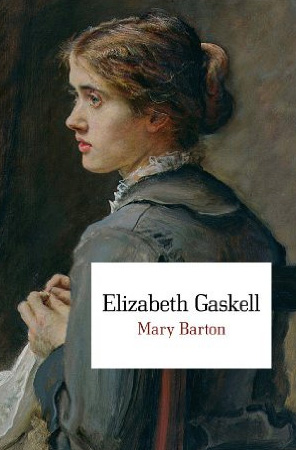
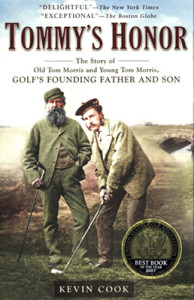
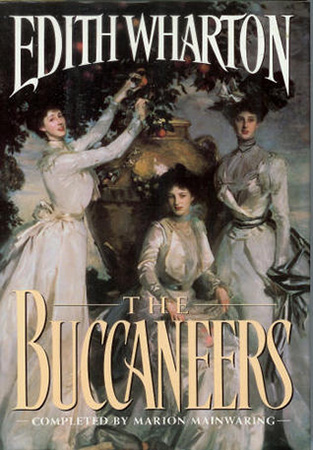
Dianne Robinson
December 4, 2016 at 8:35 am (8 years ago)Thank you for all these wonderful programs.
Joanne Johnston
July 2, 2016 at 5:05 pm (9 years ago)Delighted to find Willow and Thatch. Without your guidance we would not have included the “art of of golf” in our our art center’s three week festival on British art and the Victorian Era. Now we’ll screen “Tommy”s Honor” and broaden the festival’s art submissions and definitely the exhibit’s appeal.
If you email to alert readers to new editions of Willow and Thatch, please do include me.
phyll consentino
May 18, 2016 at 3:52 pm (9 years ago)thank you for this site lovely and beautiful and very informative
Willow and Thatch
May 18, 2016 at 4:55 pm (9 years ago)Thank you! Happy to have you here.